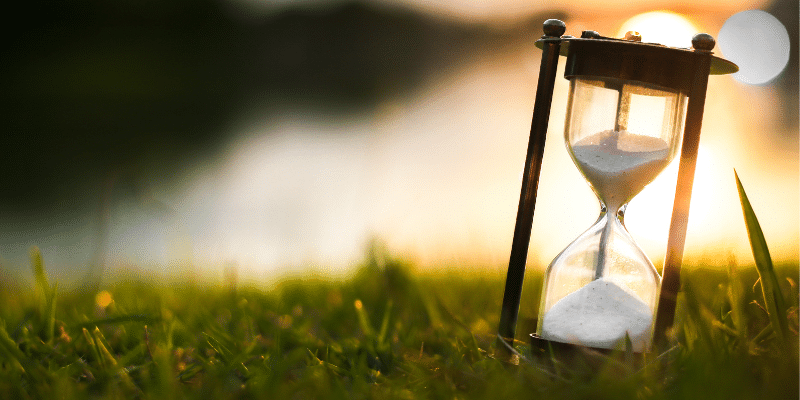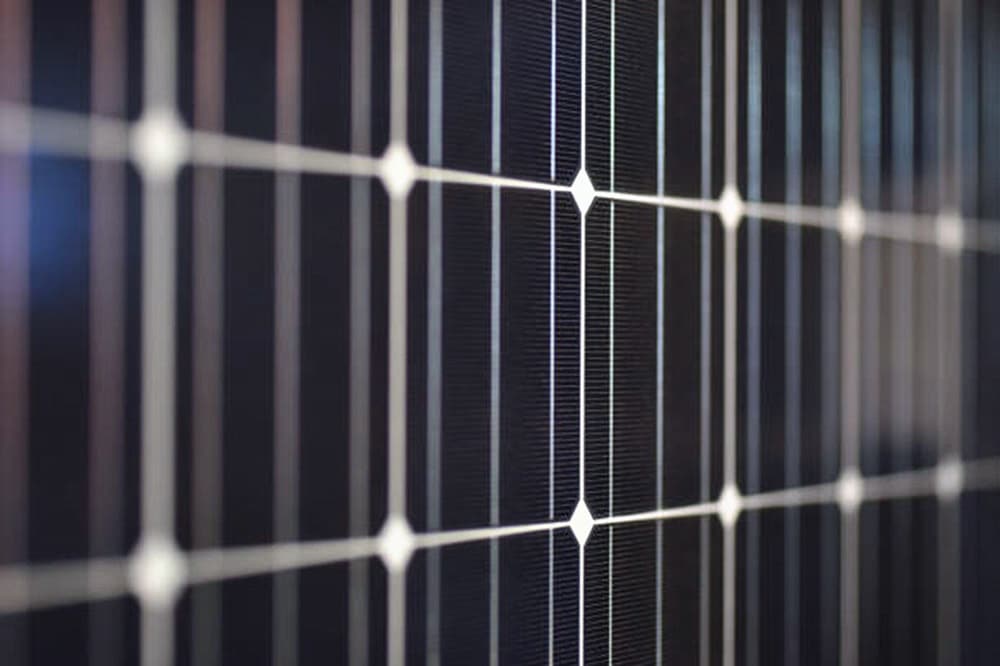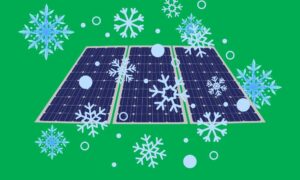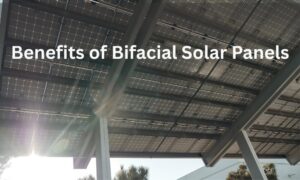In this page
Updated on 10 October 2024
Solar panels are a great way to generate your own electricity and save money. But how long do they last?
While current solar system prices in Australia are favourable, they are still a considerable investment; homeowners naturally want to understand how many years of use they’ll get out of their solar panels.
In this post, we will attempt to answer this question, factoring in the different variables that may affect your panels’ lifespan, such as solar panel degradation, and how you can make them last longer.
We’ll also look at another very common question – when is it the right time to replace your panels.
Ready to upgrade your solar panels and take your energy savings to the next level? Embrace the energy efficiency revolution by upgrading your solar panels, battery or solar inverters with Energy Matters.
With our 3 free solar quotes, you can compare plans from pre-qualified and vetted installers in your area and find the perfect solution for your home and business. Harness the sun’s power and save money on electricity bills while reducing environmental impact. Let Energy Matters guide you towards a brighter, more sustainable future.

Understanding solar panel degradation
We’ll start by looking at solar panel degradation. As many probably know, even the highest quality, most expertly installed panels will eventually degrade over time as a result of constant exposure to natural elements such as high and low temperatures, wind and rain (and birds).
Gradually, your solar panels’ output performance will degrade as tiny fractures develop in the silicon cells — referred to as microcracks. As these microcracks advance and multiply, electrical connections will begin to fail, meaning that solar cells within your panels can no longer convert sunlight into electricity at an optimal level and performance will start declining. This decrease in efficiency is known as ‘degradation’ or ‘power degradation’.
What is the solar panel degradation rate?
The most recent National Renewable Energy Laboratory (NREL) data shows that modern solar panels have a degradation rate of roughly 0.5% per year – down from 0.8% in 2012. So after 20 years of use, a solar panel sold today would be capable of producing roughly 90% of the electricity it produced when it was new.
Based on that information, solar panel manufacturers typically offer warranties of about 25 years or more. And in the case of newer or well-built systems, panels can last for 30 years.
So, you can safely assume that the average life of a quality polycrystalline or monocrystalline panel is around 25-30 years. However, this lifespan can vary depending on a range of factors, including solar panel degradation and environmental conditions.
How long do solar panels last?
Solar panels are a long-term investment, lasting 25 to 30 years with gradual power reduction. Even after this period, they will still generate electricity less efficiently. Replacing them entirely might be necessary eventually due to significant degradation. Warranties typically cover panel production for 25 years, but only sometimes the racking systems or inverters, which have shorter lifespans due to weather exposure and constant operation. Inverters typically last 10 to 15 years.
Which solar panels last the longest?
The lifespan of solar panels depends heavily on their quality. Look for Tier One manufacturers, known for their experience (in business for over 5 years), financial stability, and high-quality products. Tier One panels boast better construction and maintain higher efficiency over time. They degrade slower than their counterparts (0.3% annually compared to 0.5% and 0.8% for Tier Two and Three respectively). While Tier One panels come with a slightly higher upfront cost (10-30%), their extended lifespan and efficiency will likely make them a more cost-effective choice in the long run.
Factors that affect solar panel lifespan in Australia
There are many factors that can affect your system’s lifespan – below we list some key considerations:
Environment
- Thermal cycling: When temperatures fluctuate, particularly between daytime and night-time (but also during rain and cloud-cover), materials will expand and contract accordingly. These temperature changes are called thermal cycles and, over time, this process will put strain between joins and cause slow deterioration.
- Wind: While helping panels stay cooler during hot days for greater efficiency, wind can also be a double-edged sword in that it can cause panels to flex, resulting in damage over time.
- Humidity: In frequently hot and humid environments such as the Northern Territory and Queensland, the moisture and ambient temperature from the environment may lead to electrochemical reactions that can result in corrosion and electrical deterioration. It can also cause the adhesive to fail in particularly cheap panels.
- UV Damage: while most panels are treated with a protective UV blocker to limit the effects of UV degradation, some cheaper panels aren’t and will begin to discolour and sometime fall apart as the glue degrades. This aspect underscores the importance of considering the quality and durability of solar panels, especially in regions like Australia, where the intensity of the sun can accelerate solar panel degradation and impact how long solar panels last.
Panel quality
There are many factors that contribute to the overall quality of your solar panels. The brand, reliability and efficiency of each panel is all indicative of how long it will last. Cheaply-made panels will suffer from the substandard materials and construction utilised to save a few bucks. This can include super-glued wiring, dodgy connections, poorly soldered joints and inferior-quality components.
In Australia, one reliable indicator for high-performance solar modules (panels) and inverters is that they meet Australian Standards for use in the design and installation of solar PV systems. You can also refer to the ‘tier system’ which relates to the reputation of the manufacturer for quality and performance. You can view our comprehensive solar panels .
Installation
The best way to ensure your panels are well connected and insulated, thereby extending how long solar panels last, is by hiring a reputable installer who specialises in solar PV systems (Energy Matters is partnered with hundreds of trusted, qualified installers across Australia). It’s also important that you choose an experienced company that have been operating for at least a few years – they will be able to guide you on the best system to suit your specific needs and location.
Solar maintenance
A well-maintained system will last longer. This includes cleaning the panels regularly to remove dirt and debris. Regular inspections on your solar panels can pinpoint potential issues like loose racking, exposed wires, and other areas of concern before they become a bigger problem. An inspection of your solar panels may also include an inspection of the other equipment involved in a solar installation, namely your solar inverters and roof racking system. A typical central inverter for a PV installation will last between 10 and 15 years and thus will need to be replaced at some point during the lifetime of your solar panels.
Things you can try to make your solar panels last longer
Australia’s sunshine is perfect for solar power, but a little care can greatly maximise your panels’ lifespan. Here are some key tips:
Fight the shade
Trees and chimneys can cast shade, reducing efficiency. Keep surrounding areas trimmed to allow maximum sunlight to reach your panels throughout the day.
Keep it clean
Dust and debris buildup can significantly impact performance. Consider professional cleaning every few years, or if you’re comfortable, a gentle rinse with a soft cloth and water can help maintain optimal output.
Quality matters
When considering a solar system, look for high-quality panels with a strong warranty. Reputable installers will use durable materials built to withstand Australia’s harsh sun.
Regular checkups
Schedule annual inspections with your installer to identify any potential issues early on. They can ensure proper system function and catch minor problems before they escalate.
When is the right time to replace solar panels?
There are many factors that will determine how long your solar panels last; however, there’s no strict rule on when you should replace them. That said, we recommend replacing your panels based on their productivity rather than age. As a general guide, most manufacturers and installers recommend replacing a panel when its efficiency drops below 80%.
If you upgrade your solar system, Second Life Solar will pay to remove your old panels. Thanks to our partnerships with the CSIRO, the NSW Environment Protection Authority, and Energy Matters, we are pleased to offer current solar consumers an alternative.
Solar panels and residential solar investment
Installing solar panels is a significant investment, but their long lifespan can make them worthwhile.
Solar panels can reduce energy costs by up to 80%, resulting in significant savings over the system’s lifetime.
Solar panels can also help to increase the value of your home. Studies have shown that homes with solar panels sell for more than homes without solar panels.
The bottom line...
Answers to the questions of how long solar panels last and when you should replace them are not entirely straightforward. There are a number of factors that contribute to the longevity of your system, including product quality, installation methods, maintenance practices, climate conditions where it’s installed and more.
If there’s only one thing you can take away from this article, it should be that you get what you pay for! You can’t control the elements and no panel is invincible, but you’ll get a lot more bang for your buck when you invest in quality. In addition, don’t cut corners when it comes to finding a reputable installer who can assist you in getting the most out of your system – after all, you probably aren’t an expert and need guidance that you can trust.
Energy Matters has helped over 30,000 Australians go solar by connecting them to trusted local solar installers. You can receive up to 3 no-obligation-free solar quotes from trusted solar installers in your area. It’ll only take a few minutes and you’ll be well on your way to seeing significant savings on your energy bills.













































